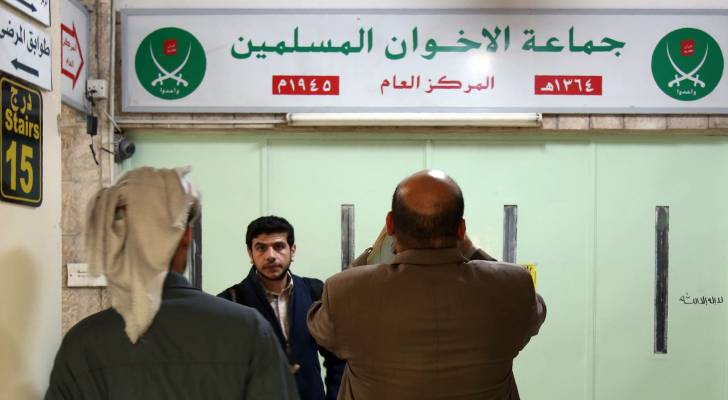Legal expert outlines repercussions for Muslim Brotherhood financial scheme in Jordan
In the ongoing investigation by Jordanian authorities into the Muslim Brotherhood's illegal activities in Jordan, legal expert and former Minister of State for Legal Affairs, Mahmoud Al-Kharabsheh, stated that the group is “fundamentally illegal,” a status affirmed by an earlier and definitive Court of Cassation ruling, the highest legal court in Jordan.
Speaking to Roya, Al-Kharabsheh explained that the banned group allegedly used millions of dinars in illicit activities, with around 30 million dinars collected through various suspicious methods.
This included registering funds in the names of individual members through direct ownership or company shares. Investigations have revealed that some of these funds were used to finance suspicious campaigns in 2020, as well as support activities and cells that have since been apprehended and referred to the judiciary.
Al-Kharabsheh noted that authorities seized approximately 4 million dinars that an individual attempted to hide in a home north of Amman. He added that these collected funds, mostly gathered from citizens, were purportedly intended for Gaza.
Expected Legal Consequences and Implications
Regarding legal consequences, Al-Kharabsheh emphasized that the group is completely unlicensed and its existence is illegal.
He anticipates that the judiciary will issue just rulings against the group, which exploited unofficial circumstances to violate the law. He highlighted that operations were conducted secretly, involving the transfer of funds abroad via currency exchange shops and investments in apartment purchases, among other methods.
Al-Kharabsheh expects several laws to be applied against the group, including the Associations Law (which penalizes illegal fundraising), the Anti-Illicit Enrichment Law, the Anti-Money Laundering Law, and the Penal Code, which punishes such illegal activities.
Concerning the potential impact on the Islamic Action Front Party, Al-Kharabsheh indicated that investigations revealed the banned group used the party's premises to cover its activities.
Should a connection between the banned group and the party be proven, the Independent Election Commission would take appropriate legal action under the Political Parties Law.
Penalties could include the closure of the party's headquarters and other measures stipulated by party legislation.




